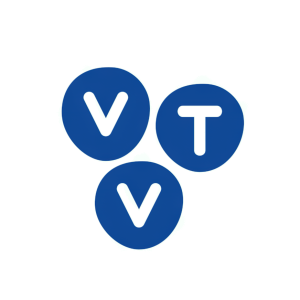vTv Therapeutics Announces Cadisegliatin Program for Type 1 Diabetes Placed on Clinical Hold
Rhea-AI Summary
vTv Therapeutics Inc. (Nasdaq: VTVT) announced that the FDA has placed a clinical hold on its cadisegliatin program for type 1 diabetes, including the ongoing CATT1 Phase 3 trial. The hold is due to an unresolved chromatographic signal discovered in a recent human ADME study. The FDA requires an in vitro study to characterize this signal before the program can resume.
Key points:
- No patients had been dosed in CATT1 at the time of the hold
- Past clinical studies showed no concerning safety issues
- Cadisegliatin has been well-tolerated in over 500 subjects for up to six months
- The company is working to resolve the hold and resume enrollment quickly
Positive
- Cadisegliatin has shown compelling efficacy and favorable safety profile in over 500 subjects
- The company is actively working with the FDA to resolve the clinical hold
- No concerning safety issues were revealed in past clinical studies
Negative
- FDA placed a clinical hold on the cadisegliatin program, including the CATT1 Phase 3 trial
- The clinical hold delays the development and potential approval of cadisegliatin for type 1 diabetes
- An unresolved chromatographic signal was discovered in a recent human ADME study
News Market Reaction 1 Alert
On the day this news was published, VTVT declined 24.53%, reflecting a significant negative market reaction.
Data tracked by StockTitan Argus on the day of publication.
HIGH POINT, N.C., July 26, 2024 (GLOBE NEWSWIRE) -- vTv Therapeutics Inc. (Nasdaq: VTVT), a late stage biopharmaceutical company with an innovative clinical portfolio of small molecules and lead program in diabetes, today announced that the United States Food and Drug Administration (FDA) has placed a clinical hold on the cadisegliatin clinical program which includes the ongoing CATT1 Phase 3 trial in type 1 diabetes. Cadisegliatin is an oral, liver selective, glucokinase activator that has been well-tolerated in over 500 subjects to date with up to six months of treatment.
The clinical hold was based on the discovery of a chromatographic signal in a recent human absorption, distribution, metabolism, and excretion (ADME) study of cadisegliatin that could not be resolved by standard mass spectroscopy. The Agency requires a single in vitro study to characterize this signal before the cadisegliatin program can resume. No patient had been dosed in CATT1 at the time of the clinical hold, and past clinical studies did not reveal any clinically concerning safety issues.
“Patient safety is our top priority, and we appreciate the thoroughness of the FDA to better understand this signal. We are working diligently with the Agency to resolve the clinical hold and resume enrollment as quickly as possible,” said Paul Sekhri, Chairman, President and Chief Executive Officer of vTv Therapeutics. “Cadisegliatin demonstrated compelling efficacy and a favorable safety profile in over 500 subjects dosed to date, and we are highly encouraged at the potential of cadisegliatin to improve glycemic control and be a much-needed oral therapy for type 1 diabetes.”
About Cadisegliatin
Cadisegliatin (TTP399) is a novel, oral small molecule, liver selective glucokinase activator with first-in- class potential as an adjunct treatment for type 1 diabetes (T1D). Selectively acting on the liver, cadisegliatin increases the activity of glucokinase independently from insulin to improve glycemic control through hepatic glucose uptake and glycogen storage.
About vTv Therapeutics
vTv Therapeutics Inc. is a late stage biopharmaceutical company focused on developing novel oral, small molecule drug candidates to help treat millions with chronic diseases. vTv’s clinical pipeline is led by cadisegliatin, a potential first-in-class adjunctive therapy to insulin for the treatment of type 1 diabetes.
Forward-Looking Statement
This release contains forward-looking statements, which involve risks and uncertainties. These forward- looking statements can be identified by the use of forward-looking terminology, including the terms “anticipate,” “believe,” “could,” “estimate,” “expect,” “intend,” “may,” “plan,” “potential,” “predict,” “project,” “should,” “target,” “will,” “would” and, in each case, their negative or other various or comparable terminology. All statements other than statements of historical facts contained in this release, including statements regarding the timing of our clinical trials, our strategy, future operations, future financial position, future revenue, projected costs, prospects, plans, objectives of management and expected market growth are forward-looking statements. These statements involve known and unknown risks, uncertainties and other important factors that may cause our actual results, performance, or achievements to be materially different from any future results, performance or achievements expressed or implied by the forward-looking statements. Important factors that could cause our results to vary from expectations include those described under the heading “Risk Factors” in our Annual Report on Form 10-K and our other filings with the SEC. These forward-looking statements reflect our views with respect to future events as of the date of this release and are based on assumptions and subject to risks and uncertainties. Given these uncertainties, you should not place undue reliance on these forward-looking statements. These forward-looking statements represent our estimates and assumptions only as of the date of this release and, except as required by law, we undertake no obligation to update or review publicly any forward-looking statements, whether as a result of new information, future events or otherwise after the date of this release. We anticipate that subsequent events and developments will cause our views to change. Our forward-looking statements do not reflect the potential impact of any future acquisitions, merger, dispositions, joint ventures, or investments we may undertake. We qualify all of our forward-looking statements by these cautionary statements.
Contact
Ashley Robinson
LifeSci Advisors, LLC
arr@lifesciadvisors.com








